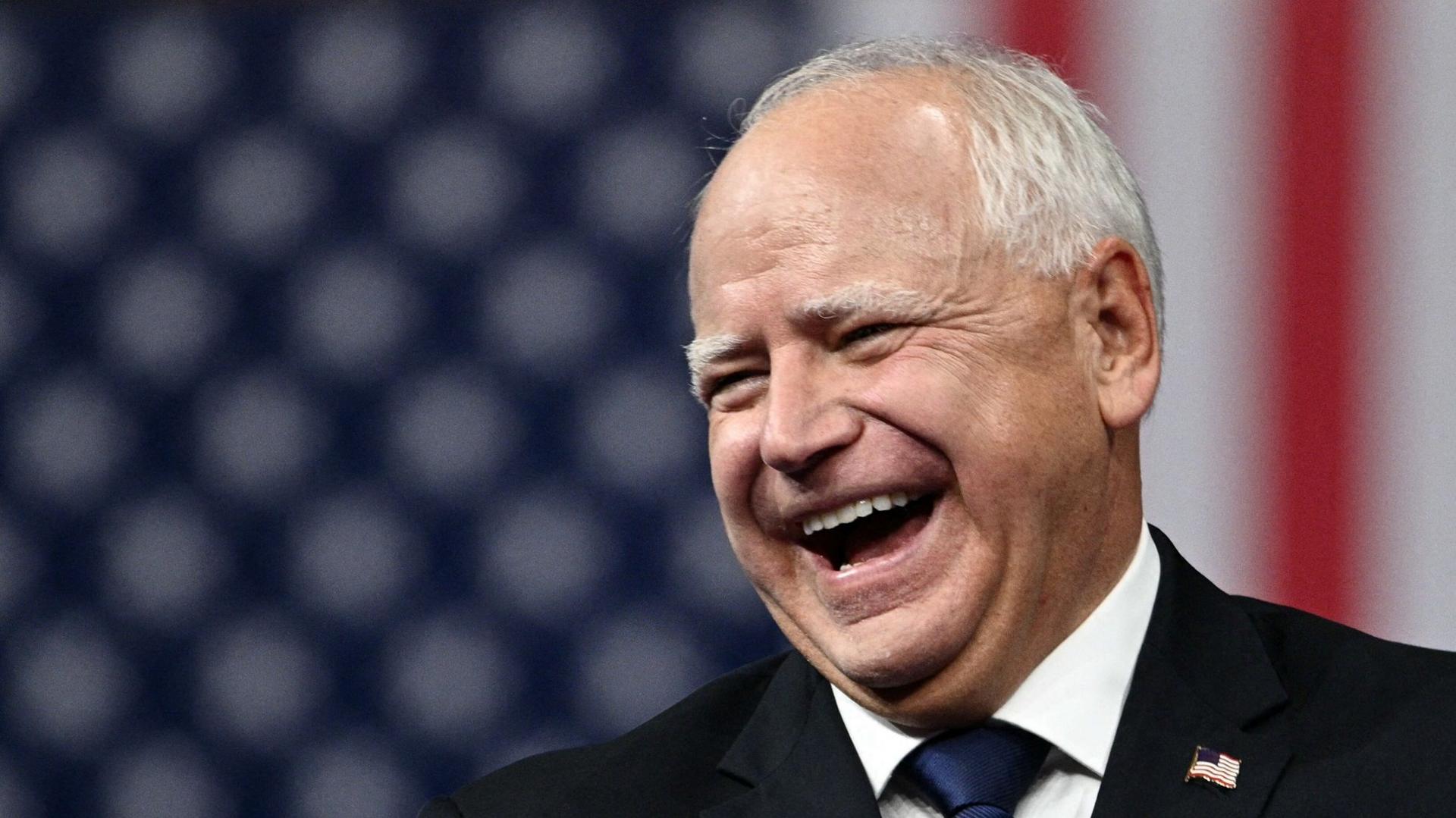Republicans attack Democratic VP pick's handling of Floyd protests
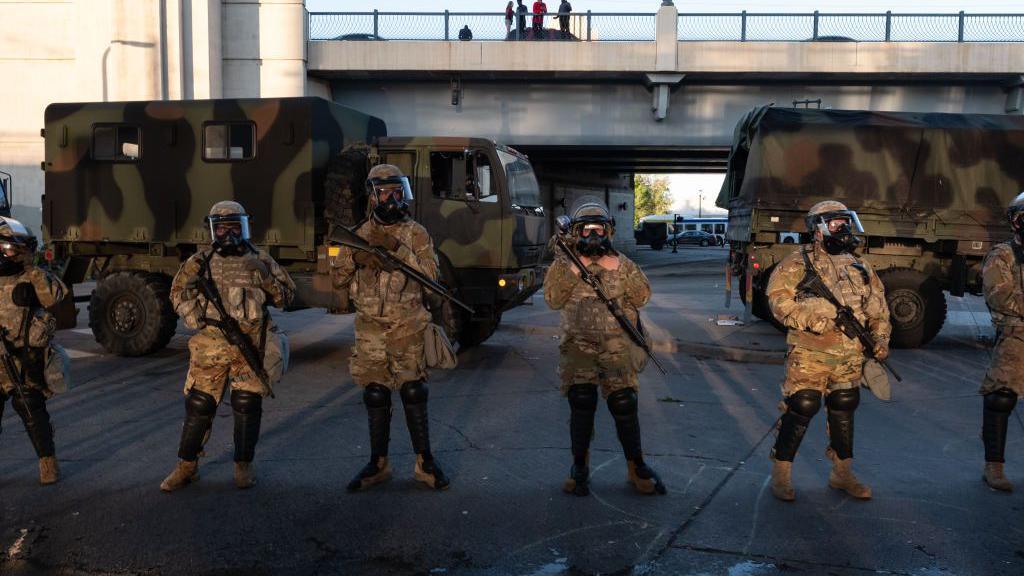
At least two people were killed and more than 600 arrested during the protests
- Published
Republicans have sharpened their attacks on Minnesota Governor Tim Walz over his response to the mass protests that erupted in his state after the 2020 police murder of George Floyd.
Critics of Kamala Harris's running mate have accused him of bungling the response to the violence by being slow to deploy the National Guard. Donald Trump praised his response as president, a recording obtained by ABC shows.
At least two people were killed and over 600 arrested during the protests, which caused hundreds of millions of dollars in damages across Minnesota.
The governor recently defended his actions, saying that his administration tried to do the best it could in a difficult situation.
Mr Floyd's murder by Derek Chauvin, a white Minneapolis police officer, sparked days of protests, some of which descended into riots and looting.
The unrest quickly overwhelmed local authorities, prompting Minneapolis mayor Jacob Frey to request Mr Walz to deploy the National Guard two days after Mr Floyd's death on 25 May in 2020.
A separate written request for 600 troops came just hours later from the city's police chief.
An email from the time seen by the BBC - dated the night of 27 May - shows that the police chief said the force had "expended all available resources" and gave a detailed breakdown of how the troops would be used, including for area security, transport and help with logistics.
But it was not until 28 May - three days into the violence - that Mr Walz signed an executive order activating Minnesota's National Guard, citing "extensive damage to private property" and a "dangerous situation" for protesters and first responders.
While some troops were deployed that night, they were mostly tasked with protecting federal buildings and were unable to prevent riots which saw a local police station set ablaze.
"We were abandoned," an unnamed local official told an external review, external of the state's response prepared for Minnesota's Department of Public Safety in 2022. "By the time the National Guard even came, mostly everything had quieted down."
A separate report, external put together by the then-Republican controlled Minnesota Senate in October 2020 said that Mr Walz "had the ability and duty to use force and law enforcement to stop violence, but he did not".
Criticism of the governor's handling of the protests in the summer of 2020 has re-emerged as an attack line from Republicans following the announcement that Mr Walz would be joining the Harris campaign.
At a rally just hours after the news, Republican vice-presidential hopeful JD Vance, questioned whether "black business owners in Minneapolis are grateful" that Mr Walz "allowed rioters to burn down their business".
The BBC has contacted the governor's office for comment.
Mr Walz has said the city's mayor did not give him adequate information to provide the soldiers a mission at that time.
“Decisions were made in a situation that is what it is,” Mr Walz said at a news conference earlier this month. “And I simply believe that we tried to do the best we can in each of those.”
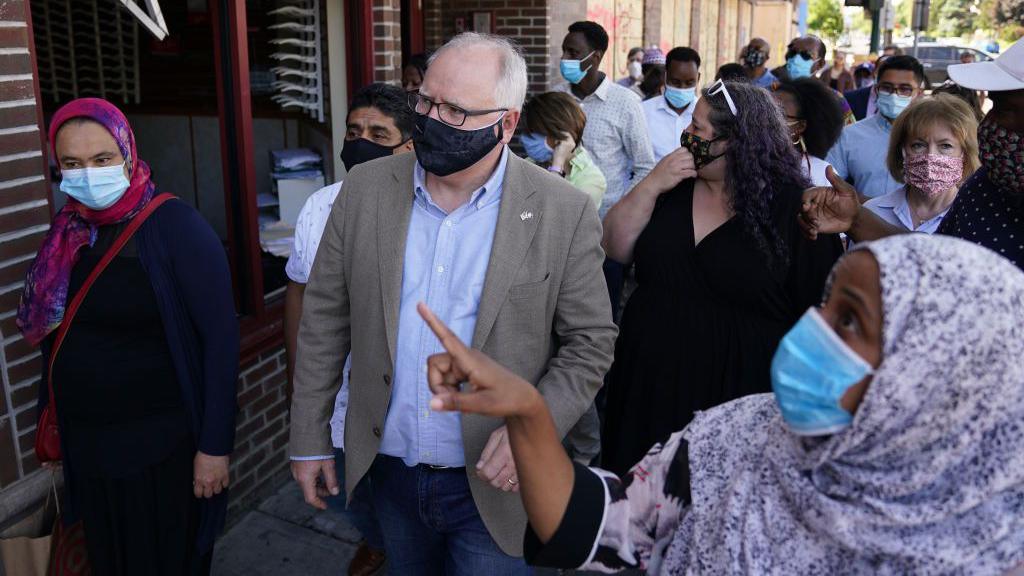
Days after the protest, Governor Walz and other lawmakers met business owners whose properties were destroyed.
How did Tim Walz respond to George Floyd’s death?
The reality of the situation on the ground in May 2020, experts note, was both complex and confusing.
"When everything was unfolding that summer, Minneapolis city leaders were not familiar with the process for asking for the National Guard's help," Duchess Harris, a professor of American Studies at Minnesota's Macalester College who focuses on African-American political history and human rights, told the BBC.
"It was unprecedented," added Ms Harris, who was appointed by Mr Walz to be on Minnesota's board of public defence.
Several after-action assessments of the response to the riots also highlight communications breakdowns between city and state officials.
One review, published by the city of Minneapolis in 2022, external, found that city officials failed to go through proper channels when they requested help.
Instead, they contacted Mr Walz directly to ask him to deploy troops.
"Governor Walz is a 24-year veteran of Minnesota's National Guard," Ms Harris added. "He pushed the mayor of Minneapolis for details. That was his job."
The subsequent activation of Minnesota's National Guard was the largest since the Second World War.
At the time of their deployment, then-President Trump reportedly approved of Mr Walz's handling of the protests, according to a recording of a phone call obtained by ABC News., external
In the call the former president tells a group of governors that Mr Walz "dominated," and praises his leadership as an example for other states to follow.
"I know Governor Walz is on the phone, and we spoke, and I fully agree with the way he handled it the last couple of days," Trump said in the 1 June, 2020 call.
"I was very happy with the last couple of days, Tim," Trump continued. "You called up big numbers and the big numbers knocked them out so fast it was like bowling pins."
In a statement sent to the BBC, Mr Frey said that he "immediately" requested the National Guard and that it was "Governor Walz, not Donald Trump" that authorised the deployment.
"During one of the city's most difficult moments, we collectively tried our best to navigate unprecedented times and do so quickly," said Mr Frey. "Governor Walz is a friend, an excellent governor and I am proud to support him as vice president."
Michelle Phelps, a sociology professor at the University of Minnesota and the author of a book that examined the protest, told the BBC that a more forceful response could have inadvertently backfired as authorities sought to control the protests.
"There's a vision in which if we had had a more conservative governor that escalated the state response in the way that President Trump wanted, we would have seen more violence and more destruction," she said.
Some advocates - including civil rights leader Al Sharpton - have also praised Mr Walz's handling of the aftermath and credited him for addressing issues of social justice and police brutality.
Mr Walz was re-elected as Minnesota's governor in 2022, two years after the protests.
While both Ms Harris and Ms Phelps said they expect Republicans to continue to attack Mr Walz for his handling of the protests, neither expect the issue will create a political liability for the governor among undecided voters.
"It's not surprising that Republicans are using this line of attack. It highlights that there are just not that many weaknesses of Walz to attack," Ms Phelps said.
"I don't think it's going to be particularly effective or decisive," she added.
- Published7 August 2024
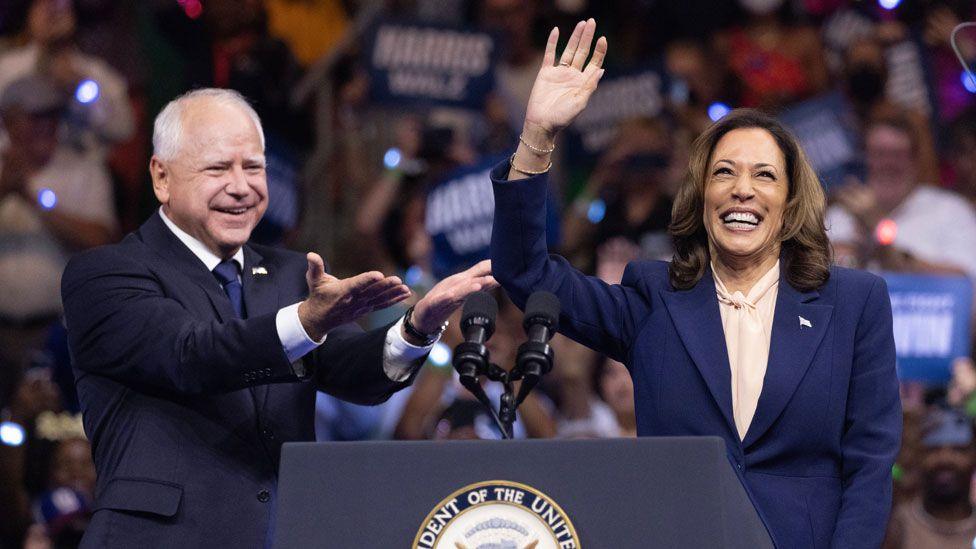
- Published1 October 2024
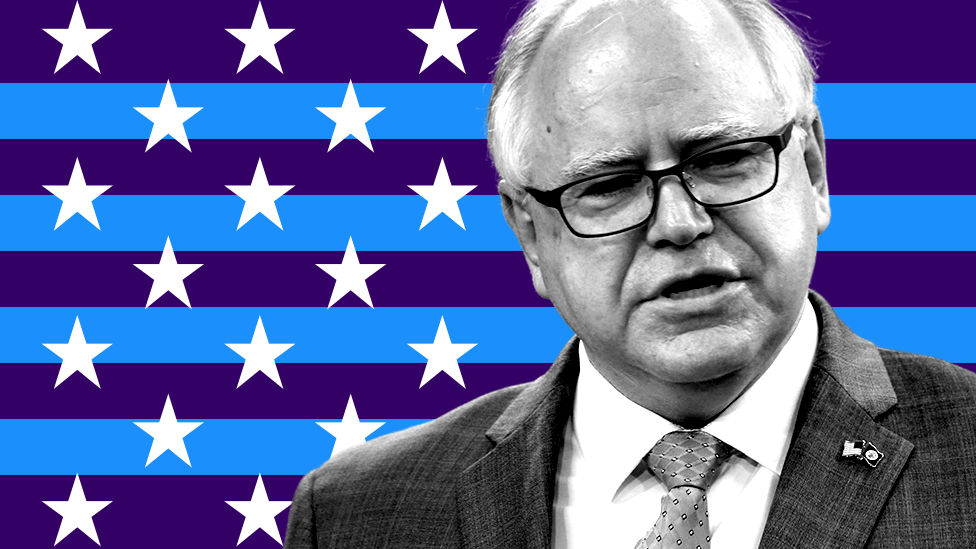
- Published7 August 2024
